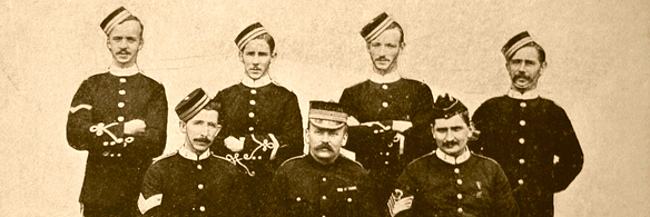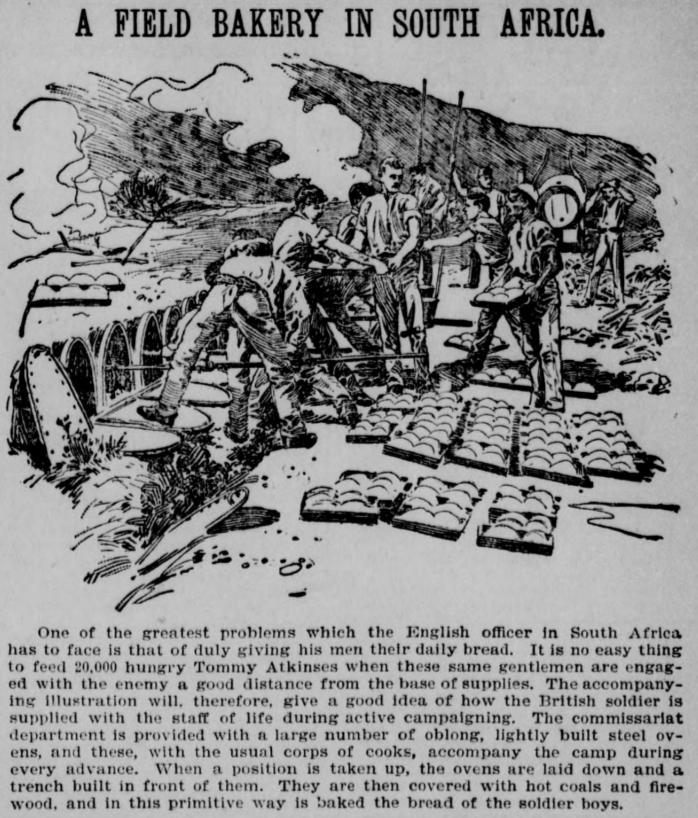Murphy's Laws of Combat Operations
Topic: Humour
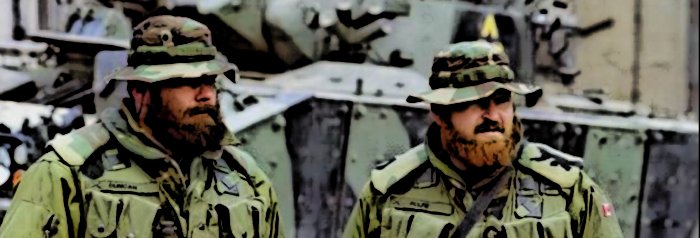
Murphy's Laws of Combat Operations
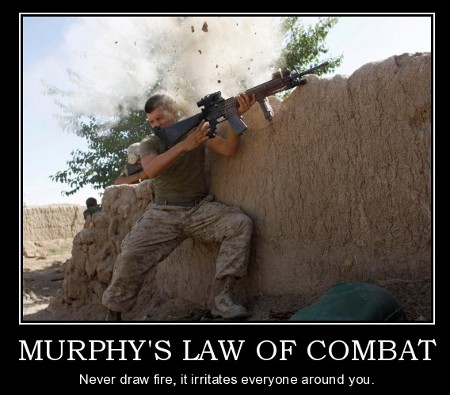 1. Friendly fire – isn't.
1. Friendly fire – isn't.
2. Recoilless rifles – aren't.
3. Suppressive fires – won't.
4. You are not Superman; Marines and fighter pilots take note.
5. A sucking chest wound is Nature's way of telling you to slow down.
6. If it's stupid but it works, it isn't stupid.
7. Try to look unimportant; the enemy may be low on ammo and not want to waste a bullet on you.
8. If at first you don't succeed, call in an airstrike.
9. If you are forward of your position, your artillery will fall short.
10. Never share a foxhole with anyone braver than yourself.
11. Never go to bed with anyone crazier than yourself.
12. Never forget that your weapon was made by the lowest bidder.
13. If your attack is going really well, it's an ambush.
14. The enemy diversion you're ignoring is their main attack.
 15. The enemy invariably attacks on two occasions: — when they're ready. — when you're not.
15. The enemy invariably attacks on two occasions: — when they're ready. — when you're not.
16. No OPLAN ever survives initial contact.
17. There is no such thing as a perfect plan.
18. Five second fuzes always burn three seconds.
19. There is no such thing as an atheist in a foxhole.
20. A retreating enemy is probably just falling back and regrouping.
21. The important things are always simple; the simple are always hard.
22. The easy way is always mined.
23. Teamwork is essential; it gives the enemy other people to shoot at.
24. Don't look conspicuous; it draws fire. For this reason, it is not at all uncommon for aircraft carriers to be known as bomb magnets.
25. Never draw fire; it irritates everyone around you.
26. If you are short of everything but the enemy, you are in the combat zone.
27. When you have secured the area, make sure the enemy knows it too.
28. Incoming fire has the right of way.
29. No combat ready unit has ever passed inspection.
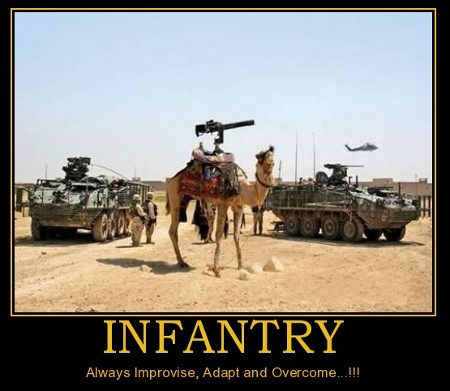 30. No inspection ready unit has ever passed combat.
30. No inspection ready unit has ever passed combat.
31. If the enemy is within range, so are you.
32. The only thing more accurate than incoming enemy fire is incoming friendly fire.
33. Things which must be shipped together as a set, aren't.
34. Things that must work together, can't be carried to the field that way.
35. Radios will fail as soon as you need fire support.
36. Radar tends to fail at night and in bad weather, and especially during both.)
37. Anything you do can get you killed, including nothing.
38. Make it too tough for the enemy to get in, and you won't be able to get out.
39. Tracers work both ways.
40. If you take more than your fair share of objectives, you will get more than your fair share of objectives to take.
41. When both sides are convinced they're about to lose, they're both right.
42. Professional soldiers are predictable; the world is full of dangerous amateurs.
43. Military Intelligence is a contradiction.
44. Fortify your front; you'll get your rear shot up.
45. Weather ain't neutral.
46. If you can't remember, the Claymore is pointed towards you.
47. Air defense motto: shoot 'em down; sort 'em out on the ground.
48. 'Flies high, it dies; low and slow, it'll go.
49. The Cavalry doesn't always come to the rescue.
 50. Napalm is an area support weapon.
50. Napalm is an area support weapon.
51. Mines are equal opportunity weapons.
52. B–52s are the ultimate close support weapon.
53. Sniper's motto: reach out and touch someone.
54. Killing for peace is like screwing for virginity.
55. The one item you need is always in short supply.
56. Interchangeable parts aren't.
57. It's not the one with your name on it; it's the one addressed "to whom it may concern" you've got to think about.
58. When in doubt, empty your magazine.
59. The side with the simplest uniforms wins.
60. Combat will occur on the ground between two adjoining maps.
61. If the Platoon Sergeant can see you, so can the enemy.
62. Never stand when you can sit, never sit when you can lie down, never stay awake when you can sleep.
63. The most dangerous thing in the world is a Second Lieutenant with a map and a compass.
64. Exceptions prove the rule, and destroy the battle plan.
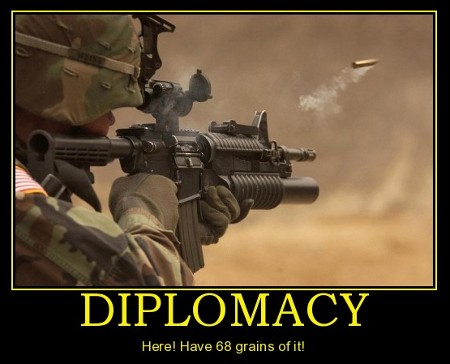 65. Everything always works in your HQ, everything always fails in the Colonel's HQ.
65. Everything always works in your HQ, everything always fails in the Colonel's HQ.
66. The enemy never watches until you make a mistake.
67. One enemy soldier is never enough, but two is entirely too many.
68. A clean (and dry) set of BDU's is a magnet for mud and rain.
69. The worse the weather, the more you are required to be out in it.
70. Whenever you have plenty of ammo, you never miss. Whenever you are low on ammo, you can't hit the broad side of a barn.
71. The more a weapon costs, the farther you will have to send it away to be repaired.
72. The complexity of a weapon is inversely proportional to the IQ of the weapon's operator.
73. Field experience is something you don't get until just after you need it.
74. No matter which way you have to march, its always uphill.
75. If enough data is collected, a board of inquiry can prove anything.
76. For every action, there is an equal and opposite criticism. (in boot camp)
77. Airstrikes always overshoot the target, artillery always falls short.
78. When reviewing the radio frequencies that you just wrote down, the most important ones are always illegible.
79. Those who hesitate under fire usually do not end up KIA or WIA.
80. The tough part about being an officer is that the troops don't know what they want, but they know for certain what they don't want.
81. To steal information from a person is called plagiarism. To steal information from the enemy is called gathering intelligence.
82. The weapon that usually jams when you need it the most is the M60.
83. The perfect officer for the job will transfer in the day after that billet is filled by someone else.
84. When you have sufficient supplies & ammo, the enemy takes 2 weeks to attack. When you are low on
supplies & ammo the enemy decides to attack that night.
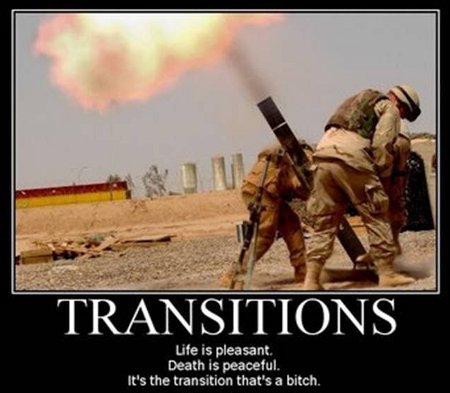 85. The newest and least experienced soldier will usually win the Medal of Honor.
85. The newest and least experienced soldier will usually win the Medal of Honor.
86. A Purple Heart just proves that were you smart enough to think of a plan, stupid enough to try it, and lucky enough to survive.
87. Murphy was a grunt.
88. Beer Math ––> 2 beers times 37 men equals 49 cases.
89. Body count Math ––> 3 guerrillas plus 1 probable plus 2 pigs equals 37 enemies killed in action.
90. The bursting radius of a hand grenade is always one foot greater than your jumping range.
91. All–weather close air support doesn't work in bad weather.
92. The combat worth of a unit is inversely proportional to the smartness of its outfit and appearance.
93. The crucial round is a dud.
94. Every command which can be misunderstood, will be.
95. There is no such place as a convenient foxhole.
96. Don't ever be the first, don't ever be the last and don't ever volunteer to do anything.
97. If your positions are firmly set and you are prepared to take the enemy assault on, he will bypass you.
98. If your ambush is properly set, the enemy won't walk into it.
99. If your flank march is going well, the enemy expects you to outflank him.
100. Density of fire increases proportionally to the curiousness of the target.
101. Odd objects attract fire – never lurk behind one.
102. The more stupid the leader is, the more important missions he is ordered to carry out.
103. The self–importance of a superior is inversely proportional to his position in the hierarchy (as is his deviousness and mischievousness).
104. There is always a way, and it usually doesn't work.
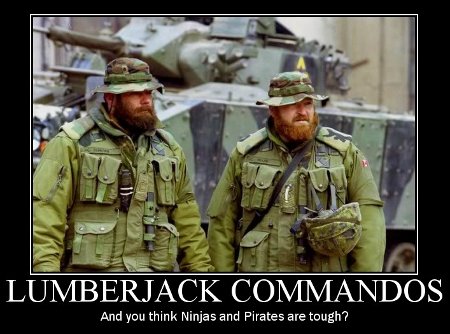 105. Success occurs when no one is looking, failure occurs when the General is watching.
105. Success occurs when no one is looking, failure occurs when the General is watching.
106. The enemy never monitors your radio frequency until you broadcast on an unsecured channel.
107. Whenever you drop your equipment in a fire–fight, your ammo and grenades always fall the farthest
away, and your canteen always lands at your feet.
108. As soon as you are served hot chow in the field, it rains.
109. Never tell the Platoon Sergeant you have nothing to do.
110. The seriousness of a wound (in a fire–fight) is inversely proportional to the distance to any form of cover.
111. Walking point = sniper bait.
112. Your bivouac for the night is the spot where you got tired of marching that day.
113. If only one solution can be found for a field problem, then it is usually a stupid solution.
114. If the enemy is in range so are you.
115. Field experience is something you never get until just after you need it.
116. All or any of the above combined.

Posted by regimentalrogue
at 12:01 AM EST
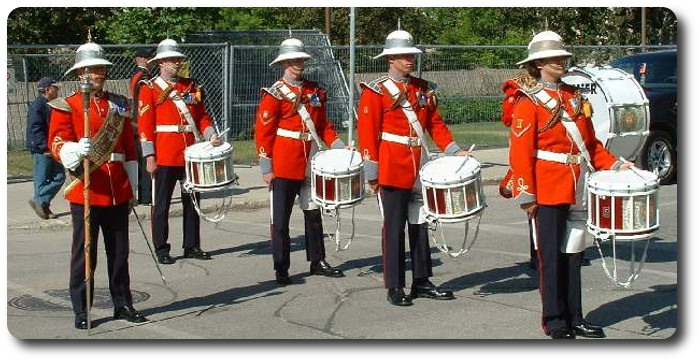


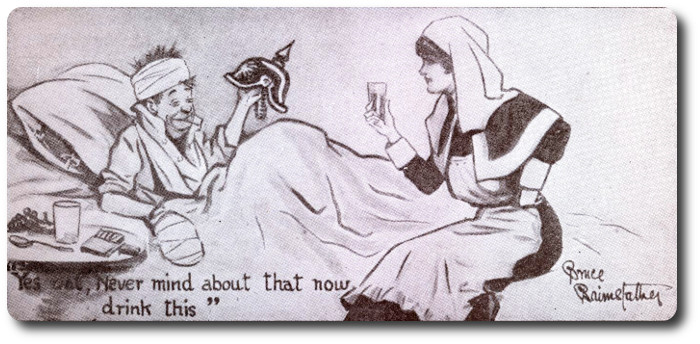


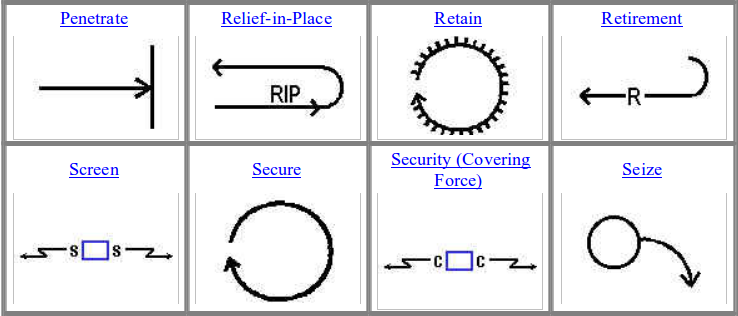
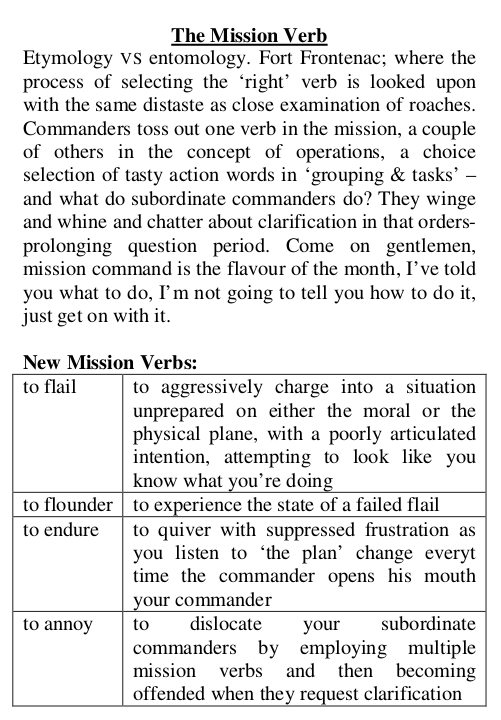
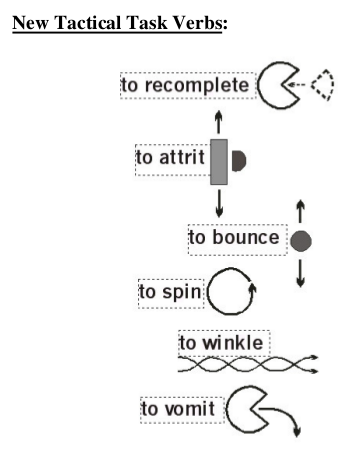

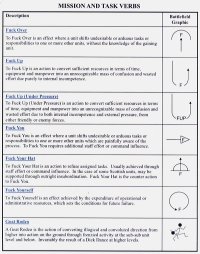
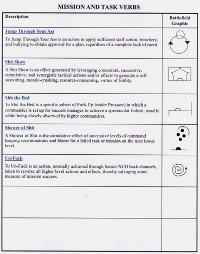
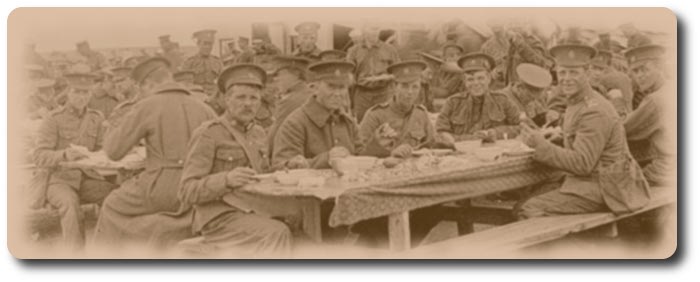




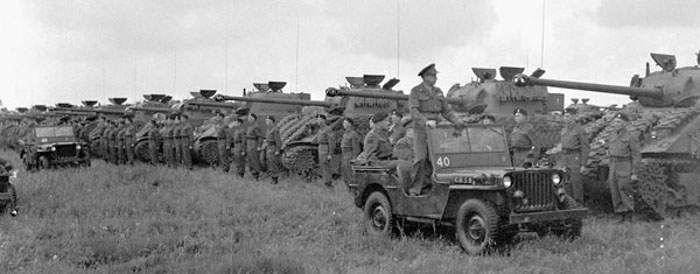


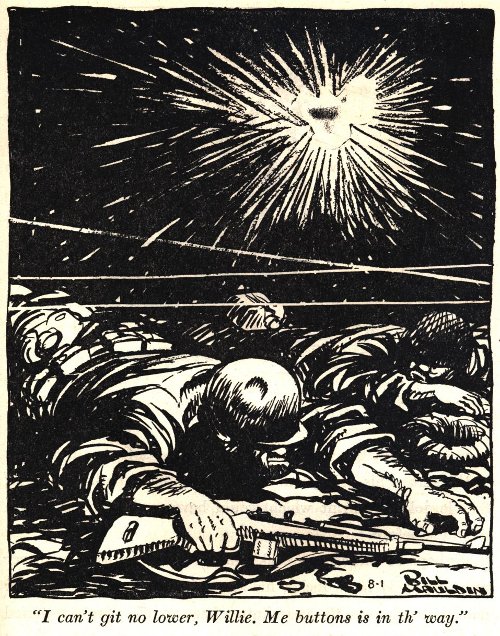
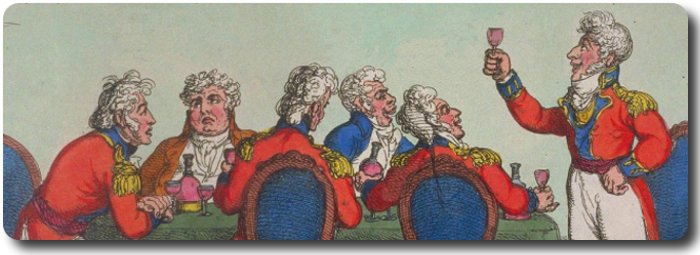
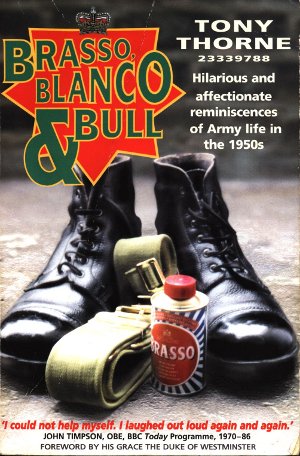
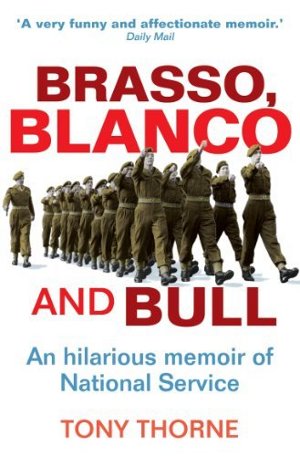
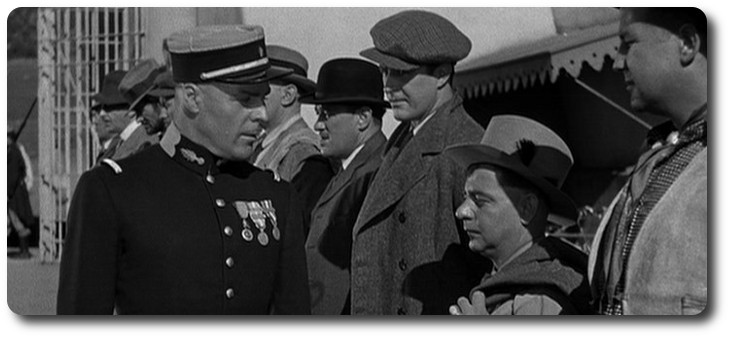
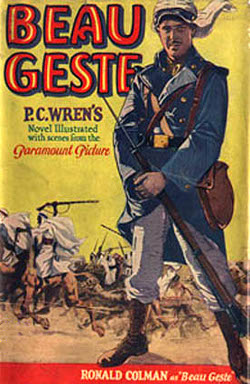 Beau Geste, Percival Christopher Wren, 1927
Beau Geste, Percival Christopher Wren, 1927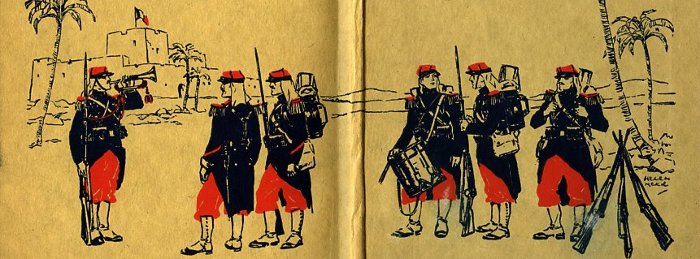

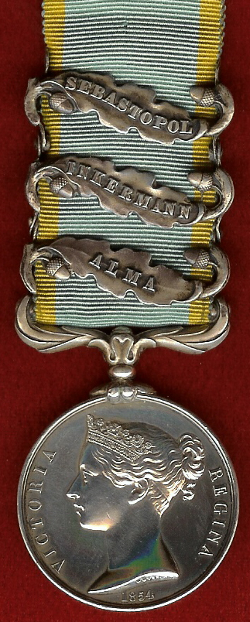 Never a word of a lie in it!
Never a word of a lie in it!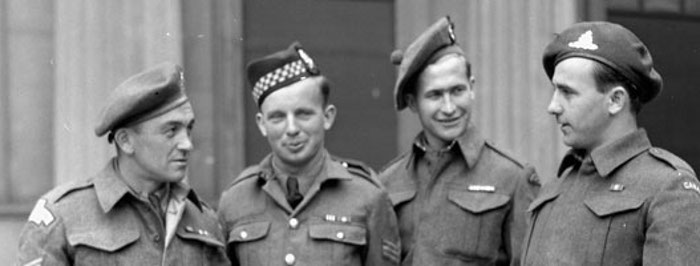

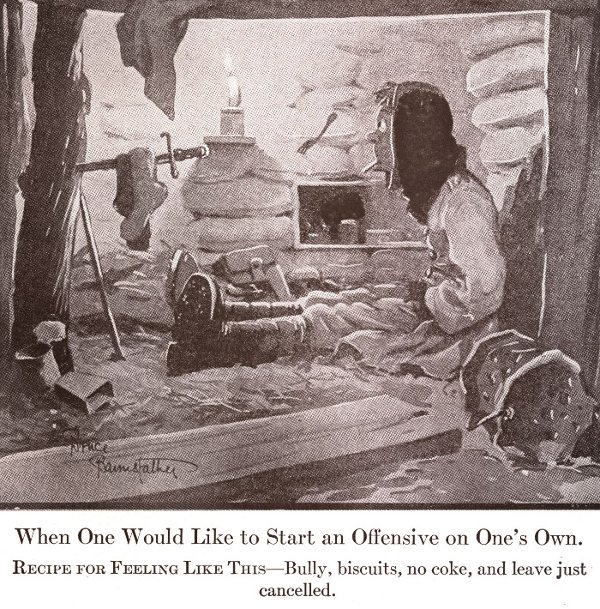
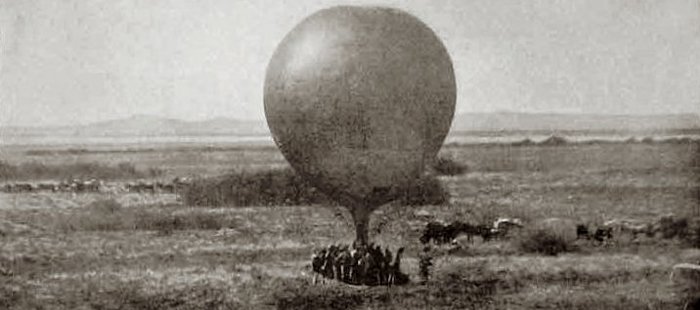


 1. Friendly fire – isn't.
1. Friendly fire – isn't. 15. The enemy invariably attacks on two occasions: — when they're ready. — when you're not.
15. The enemy invariably attacks on two occasions: — when they're ready. — when you're not. 30. No inspection ready unit has ever passed combat.
30. No inspection ready unit has ever passed combat. 50. Napalm is an area support weapon.
50. Napalm is an area support weapon. 65. Everything always works in your HQ, everything always fails in the Colonel's HQ.
65. Everything always works in your HQ, everything always fails in the Colonel's HQ. 85. The newest and least experienced soldier will usually win the Medal of Honor.
85. The newest and least experienced soldier will usually win the Medal of Honor. 105. Success occurs when no one is looking, failure occurs when the General is watching.
105. Success occurs when no one is looking, failure occurs when the General is watching.